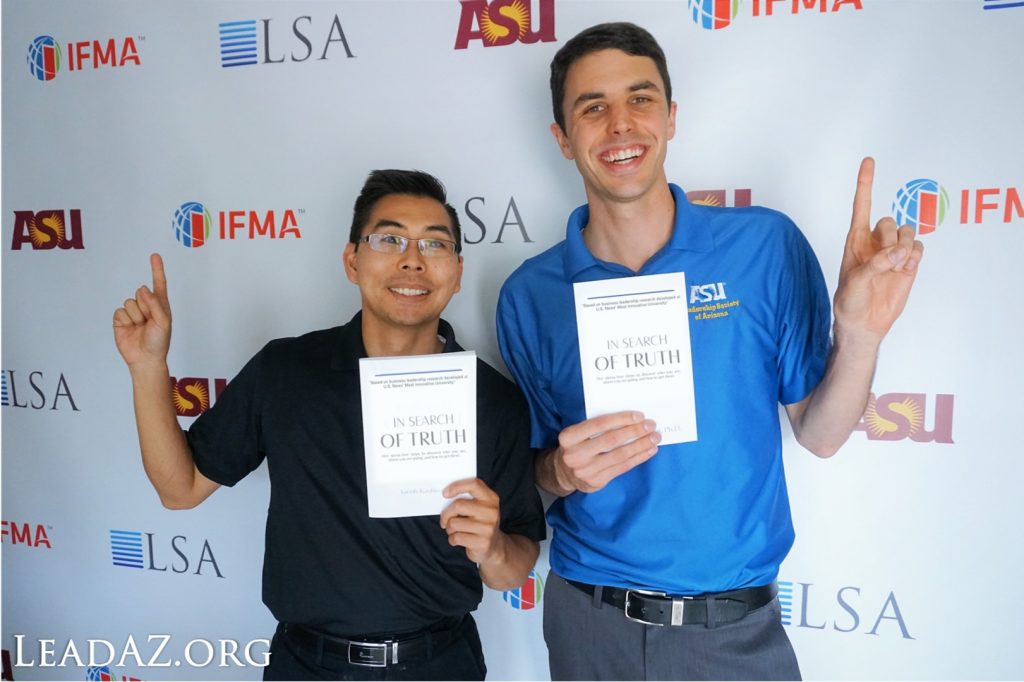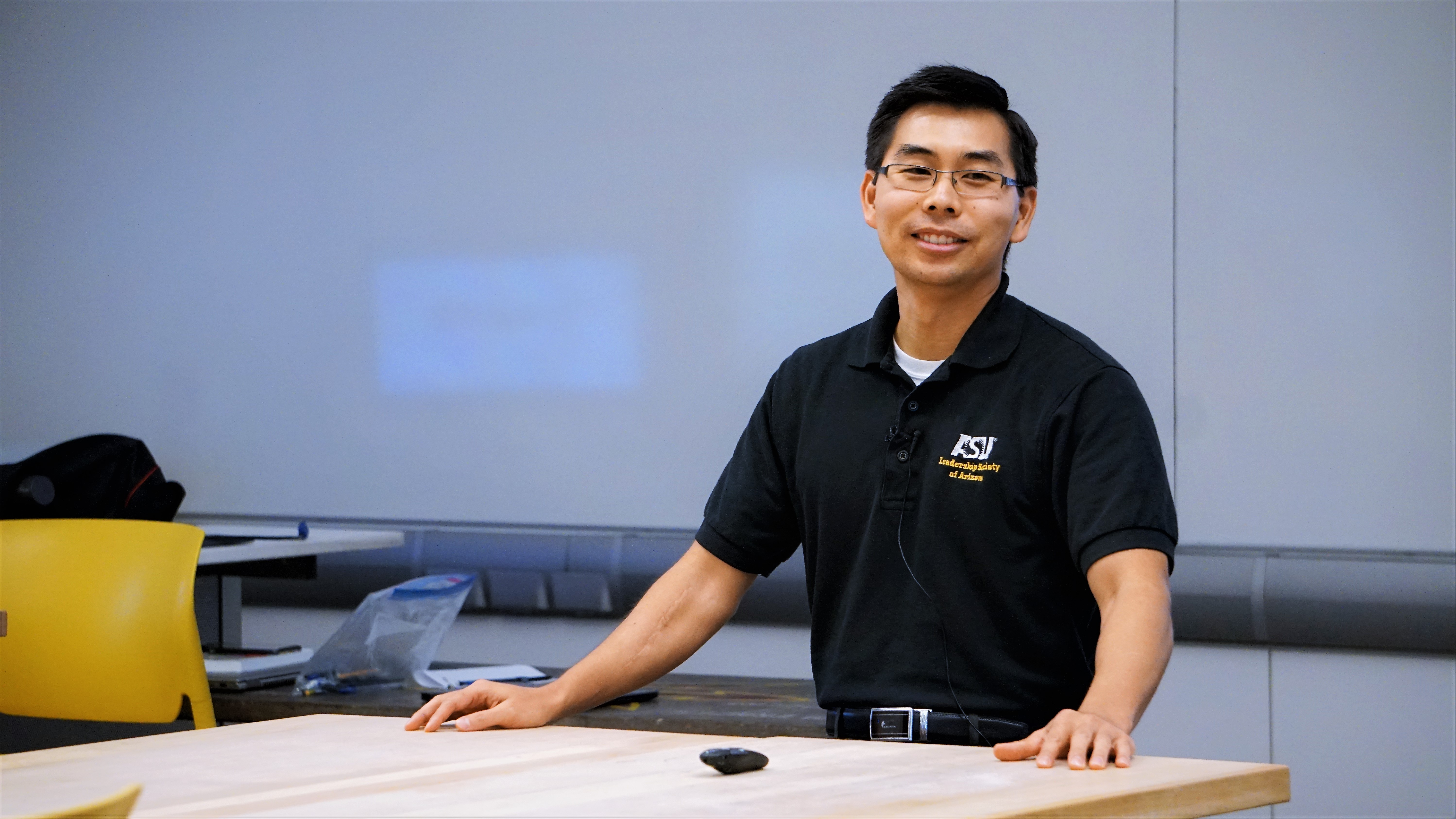Welcome to my Read along!
Recently I published a book called In Search of Truth. To be accurate, I wrote the book and Dr. Jake Gunnoe published it for me. I want to thank him for doing a great job in making my work accessible to everyone. This book was not written in conjunction with any of my recent efforts with my academic work at the Performance Based Studies Research Group, or my professional work at Kashiwagi Solution Model Inc., or even my non-profit work with the Leadership Society of Arizona. This book really was me writing down what I thought would be of most value to others in their life. The book does go along very well with the other work that I am doing, but the reason for doing it was not exactly the same. For the next couple of months, I will focus this blog on going through the book and providing my insights and reasoning in writing it.

What is the search of truth?
The first thing I’d like to point out is the title: In Search of Truth. This very well could have been called “In Search of Reality.” When I thought about what would be of most beneficial to the readers and to other people, I realized that the people who can quickly identify what is accurate or correct in life, are the people who will be able to reach their dreams and become successful the quickest.
Imagine going through life not understanding the law of gravity. You might live in fear that any step you take could send you floating away. You might experience a lot more pain by walking off a cliff and not realizing you will fall 100 ft. The less you understand how life works, the more worry, issues, effort and pain you go through.
When I was growing up, I realized that the most beneficial relationship, were with people who taught me how to quickly understand when something was right or accurate. That’s what I would like to give back to others.
Why search for truth?
In each blog I’ll read a small excerpt from my book and I’ll share some thoughts and ideas. We’ll begin with the Author’s Note “Why Search for Truth”
“Ever since I can remember I’ve been on a quest in search of something. As I’ve matured the purpose of the quest has changed many times. when I was younger the purpose tended to be short-sighted and often fleeting. Sometimes even ridiculous and unrealistic. In the morning, it could be trying to steal a piece of gum from the pantry, in the afternoon it could be trying to defeat the Decepticons from taking over the world.”
As I have grown up, my purpose and goals have changed many times. When I see someone ask their 12-year old student or even 17-year old child, “What are you going to do for the rest of your life?” I wonder “How can they possibly know that?” Even in my life I found that what I’m doing today, I would never have imagined doing this even 10 years ago. Ten years ago in my life, at the age of 27, I had traveled the world multiple times over, visited more than 20 countries, was about to receive my Ph.D. (after having received a B.S. in Industrial Engineer, and a M.S. in construction management), and had given over 100 professional presentations. So how could a child with no experience, who hasn’t really been able to do very much in life yet, how could they possibly know? I tell the youth, don’t worry about trying to figure out what you’re going to do for your entire life.
Successful people aren’t the ones who figure out what they want to do at a young age. People are successful when they actually care about things in life. Very few people care about their time and how they spend it. Few people have the drive to be good at something. It could be stealing a piece of gum from the pantry; it could be timing yourself and caring about how quickly you can put a puzzle together. People who care about something, anything, are the people who become successful. When I would steal gum from the pantry, I probably caused a lot of pain for my parents because I was very good at it. At the time, I didn’t realize hiding my chewed gum underneath my mattress wasn’t the best idea. Before my parents figured out what was going on, I had stolen a lot of pieces of gum and I ruined my bed. As I’ve developed in life and cared about things, it has caused me to continually improve and gain new experiences. I believe that is what has led me to be the most successful at what I’m doing today.
Where can the search take you?
The book continues:
At the age of six I debated with my friends what happens after we die. At the time, this might have caused my parents some consternation, as my father was on tour with the Air Force, and we were living in Saudi Arabia where it was against the law to talk about religion. At the age of 13, my math teacher asked us, “If you could have one wish, what would it be?” And I responded, “To be a god,” suffice it to say Mr. McWilliams never looked at me the same again.
At the time I thought, “Doesn’t everybody want to be a god?” In my mind I pictured a god as someone who knows everything, someone who can do anything, somebody who never has to worry about anything because they are all-powerful. I thought, “Doesn’t everybody want that?” I didn’t realize not everybody wants that. If I could go back, I would realize that the fact that I even had this idea and this thought made me unique. So many people doubt themselves. They doubt that they can fulfill their dreams because they think, “Just because I have this idea everybody has that idea. Everybody wants a lot of money, or everybody wants to be the best cook.” But we don’t realize that not everybody wants that. Our desires are made up of our experiences, our genetics, who we are, how we look at life. So, if you have a desire, if you want to be the best cook in the world, the mere fact that you have that desire says you have the capability to achieve it. If you have a dream, if you desire something, go after it, because there’s a reason you want it. There’s a reason that dream is in your mind, and because it identifies a uniqueness in you and your capability to achieve.
When I was younger, people would always tell me, “Great job Jacob!” they’d say, “Wow you’re really good at this thing!” and I’d always think they were lying, because I thought, “They’re just trying to make me feel good,” but if I had to relive my life over again, if someone told me “Good job,” I’d say, “You know what? You’re right,” and I’d thank them for it, and I’d believe it.
This week:
As you’re going around, if someone tells you “Great job!” or if someone compliments you on something that you’ve done, don’t even think about it: BELIEVE IT. Give yourself a pat on the back and say “Great job! That’s awesome,” and continue with your life, and have that desire to keep moving.
The search for truth is the lifelong mission to be something and find your passion. Don’t be afraid of searching. Don’t second guess your desire to become better.
Success begins with a desire for greatness.

In Search of Truth is an independent publication by Dr. Jacob Kashiwagi and is available for purchase from Amazon, Kobo, Apple Books, Nook and more. All proceeds go towards the Leadership Society of Arizona 501(c)3 nonprofit organization.
The views expressed in the book are based on independent research and personal experience. This publication does not necessarily represent the views of LSA.
